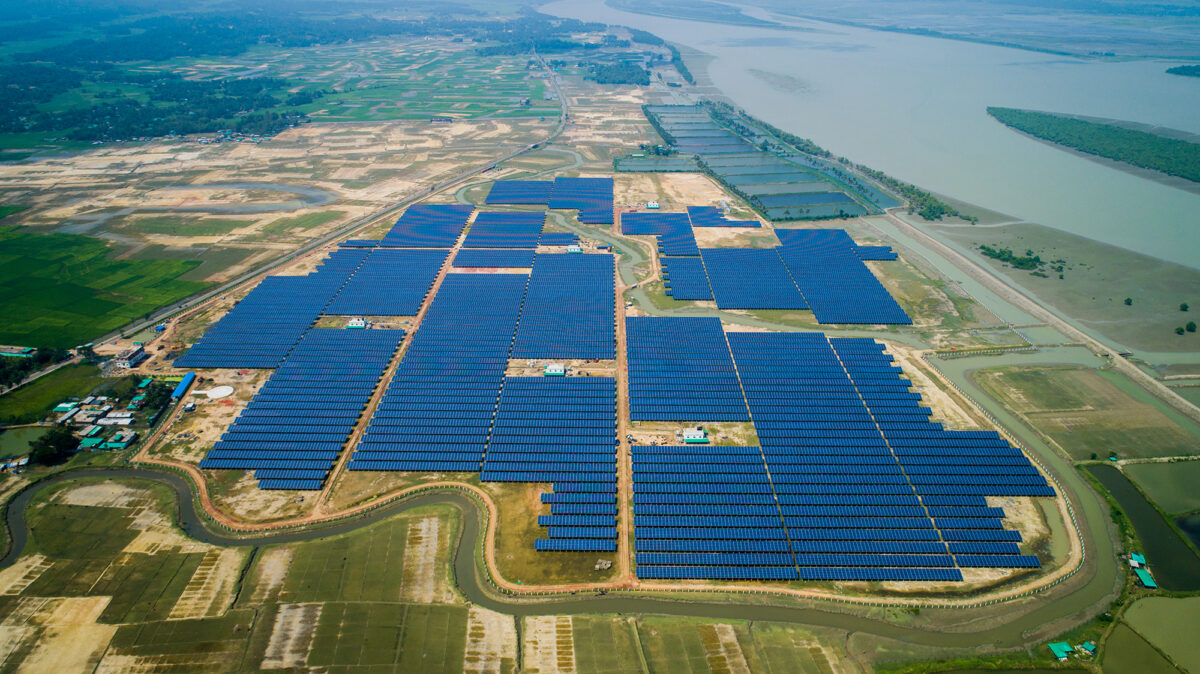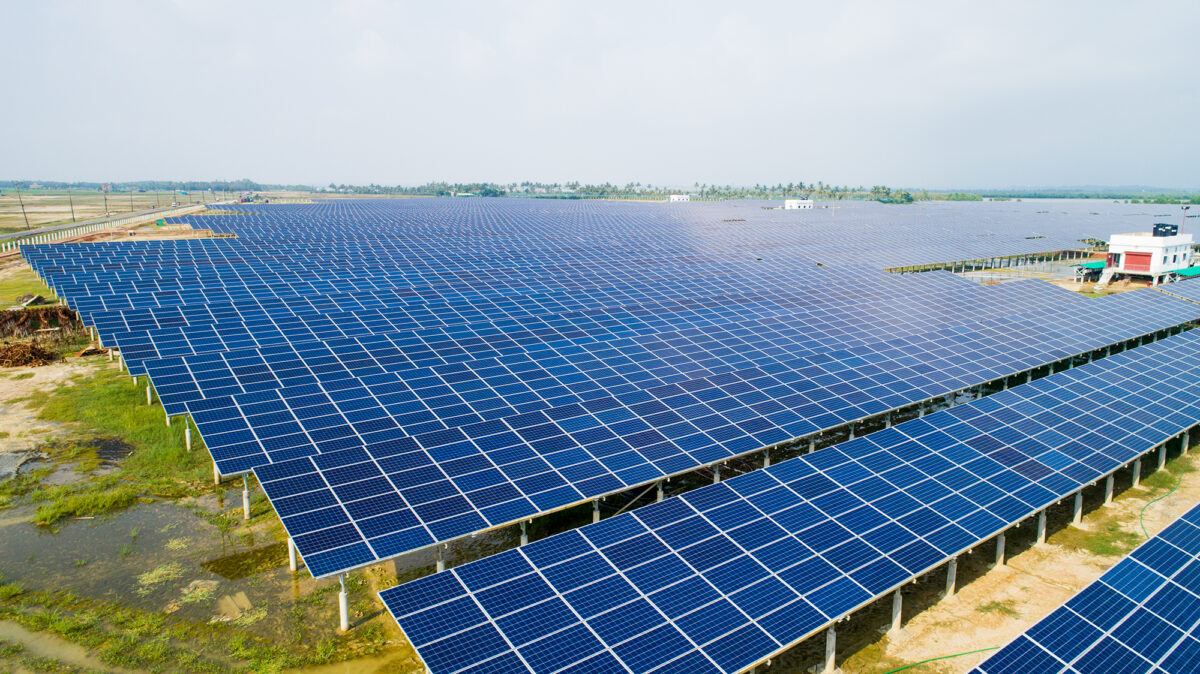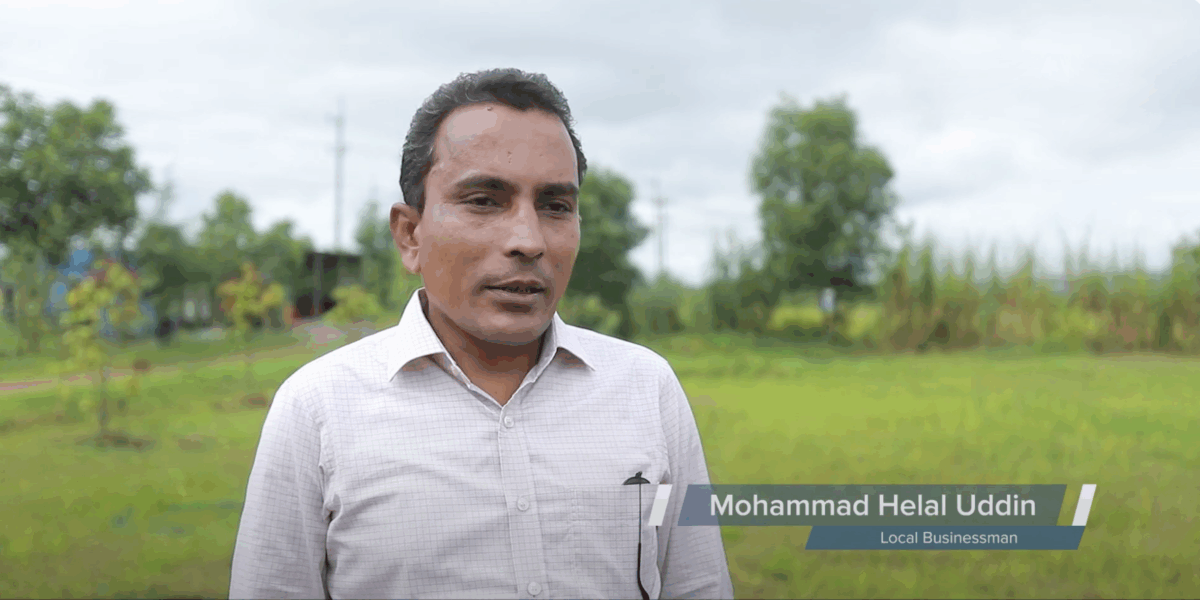
In 2008, Bangladesh set a target of 10 per cent of its national energy mix to come from renewable sources by 2020. However, the nascency of the market’s renewable energy sector meant that local financing solutions to support such projects were underdeveloped. At the same time, the domestic energy demand was increasing.
These associated risks for local banks lending to infrastructure projects in an untested domain meant that tenor and liquidity restrictions fell short of the actual finance requirements of renewable energy projects. For example, the Technaf solar power plant, Bangladesh’s first utility-scale solar project needed a 15-year financing solution to get off the ground, while the typical maximum tenor for infrastructure projects in Bangladesh at the time was just eight years.
In 2020, PIDG offered an innovative financing structure to Standard Chartered, the lending bank for the Technaf Solartech project. This combined a partial credit guarantee¹ with a liquidity extension guarantee² to support a USD 13.5 million dual currency financing solution. The guarantees helped mitigate both payment default risk and liquidity risk for the bank. This financially bankable deal was structured according to international standards.
The guarantee was unique in that it was shared across two tranches of debt in hard and local currency, US Dollar and Bangladeshi Taka respectively, which set another important precedent in the market.
PIDG’s intervention and partnership with local businessman Nuher Latif Khan served to make the project bankable and put it on the map as an attractive investment opportunity.
The liquidity extension guarantee allowed Technaf Solartech to benefit from a 15-year tenor for its loan, which was not available in the local market at the time, while also allowing Standard Chartered to exit the transaction after an initial eight years should there be liquidity constraints.
PIDG also provided a USD 107,000 technical assistance grant to fund and undertake technical and health, safety, environmental and social (HSES) due diligence. A comprehensive environmental social action plan was then prepared to assist the project align with the IFC Performance Standards by an internationally reputed independent advisor.
1. Partial Credit Guarantee: a non-payment guarantee of a portion of senior debt to a project company. It can be made over a loan, a bond or a securitisation deal.
2. Liquidity Extension Guarantee: a guarantee to extend the maturity of a loan/bond by calling on it after an initial maturity if the lenders want to exit. PIDG would then refinance the transaction. This is a conditional guarantee, e.g. credit risk cannot deteriorate.
This transaction enabled the development of the pioneering Technaf Solartech plant to begin, making it the first grid-connected solar project to be operational in Bangladesh.
The innovative financing structure designed by PIDG was recognised by FinanceAsia as ‘Best Bangladesh Deal of the Year’ in its 2020 Awards programme.
Since Technaf became operational, Joules Power has secured USD 24.3 million of funding for a new grid-connected solar plant in the northeast of Bangladesh, Mymensingh.
We expect that the project will be used as an open-source framework to inspire replication by other developers in the market and a case study to instil greater confidence in local lenders as they have a tangible example of what is possible.

At peak production in 2022, the plant supply covered up to 80 per cent of the existing electricity demand of the Teknaf region from a renewable source.
Increased reliance on renewable energy sources like solar is not only environmentally friendly but also reduces the drain on Bangladesh’s foreign currency being spent on importing costly fossil fuels.
